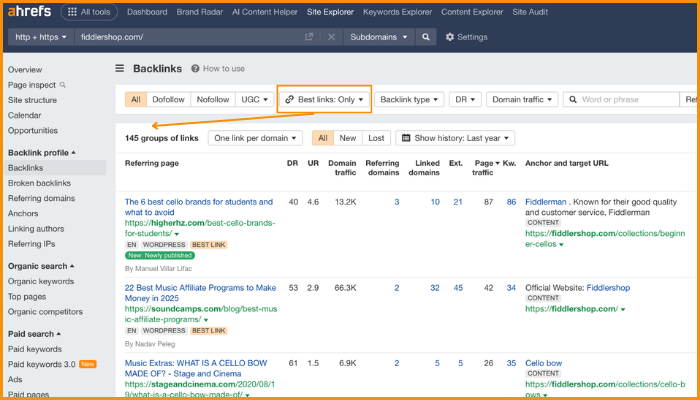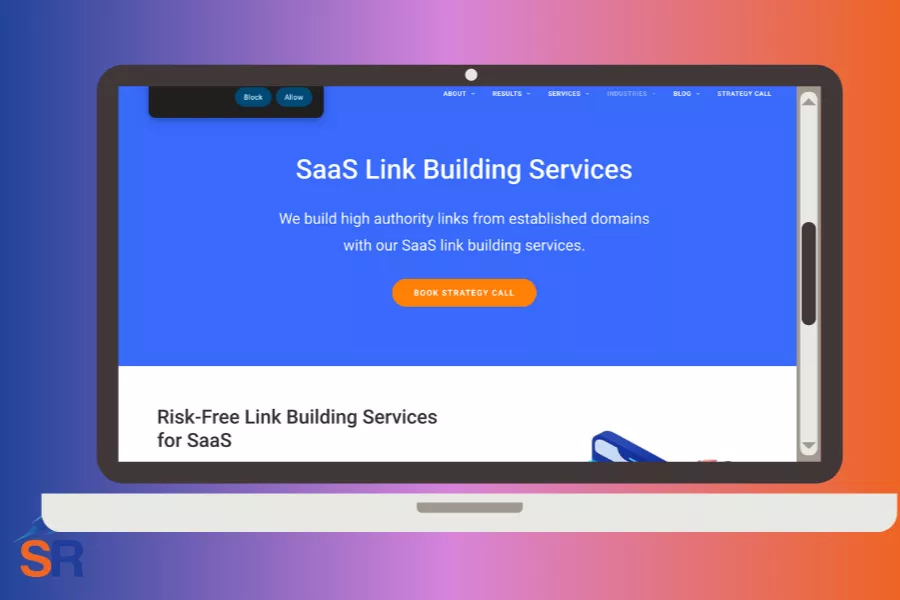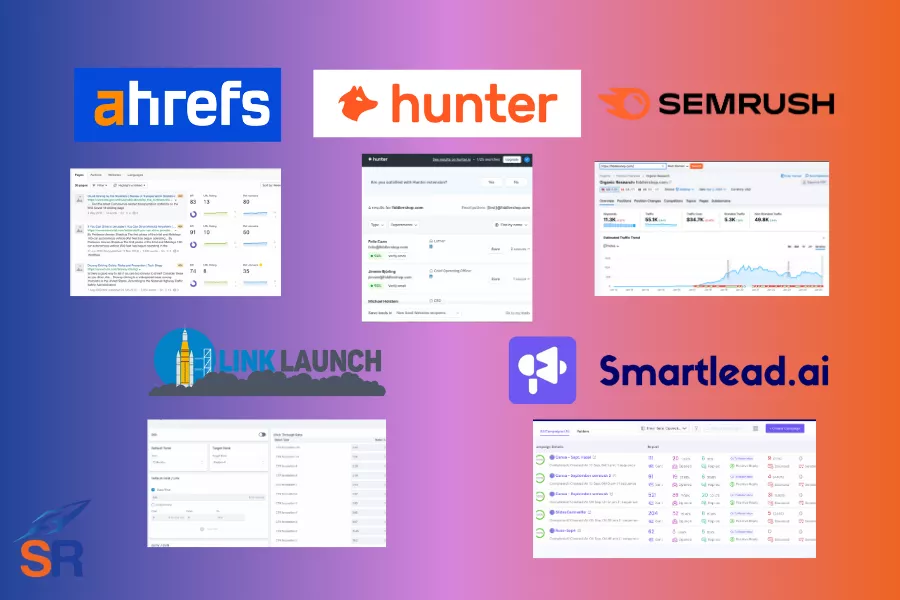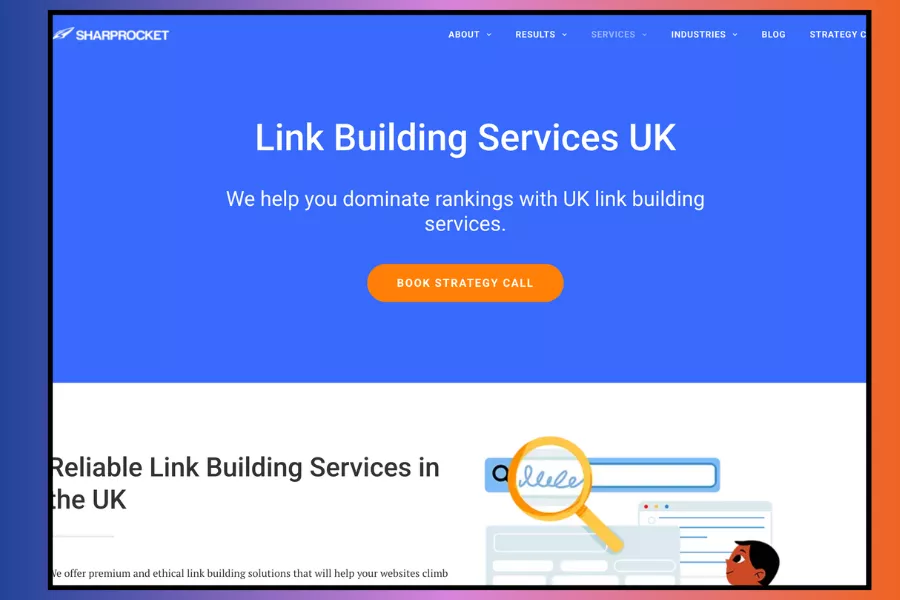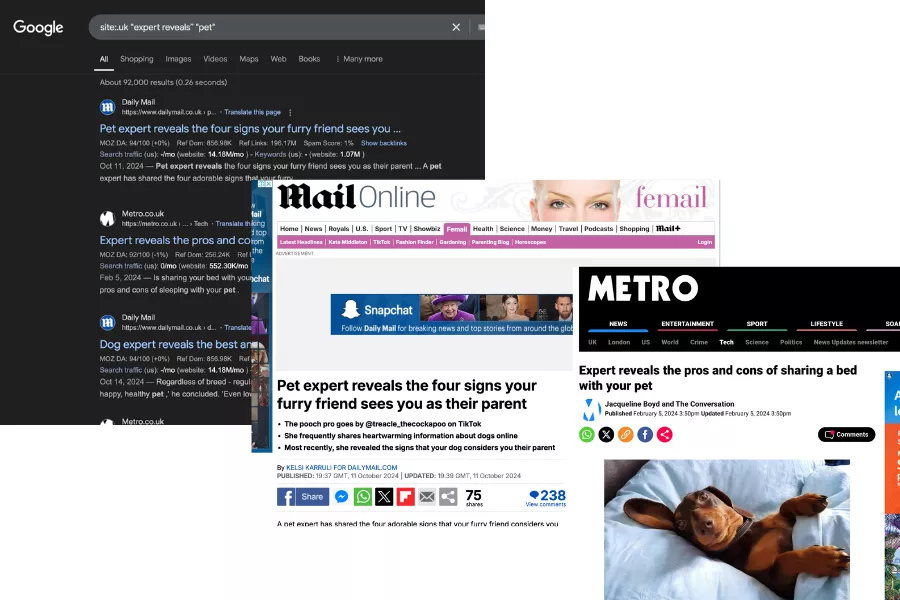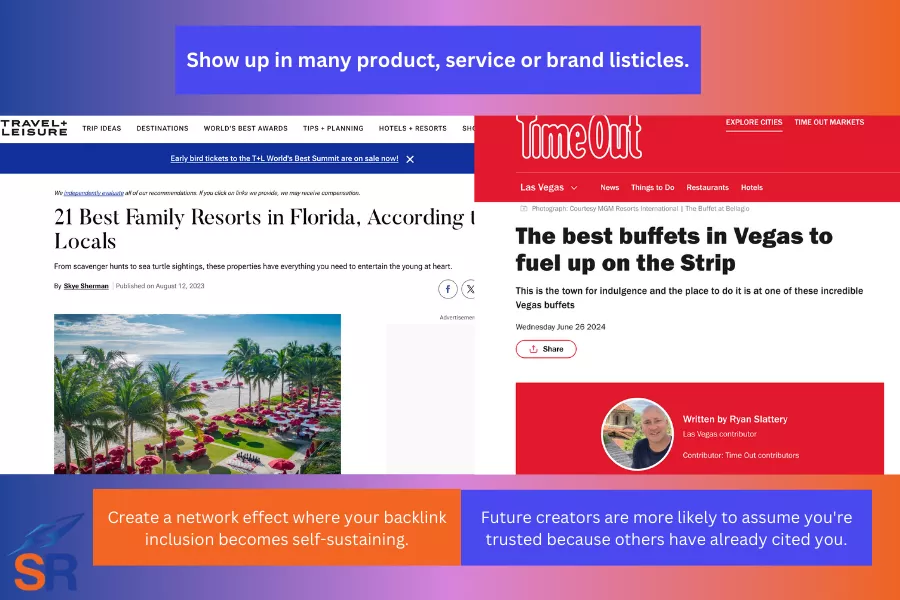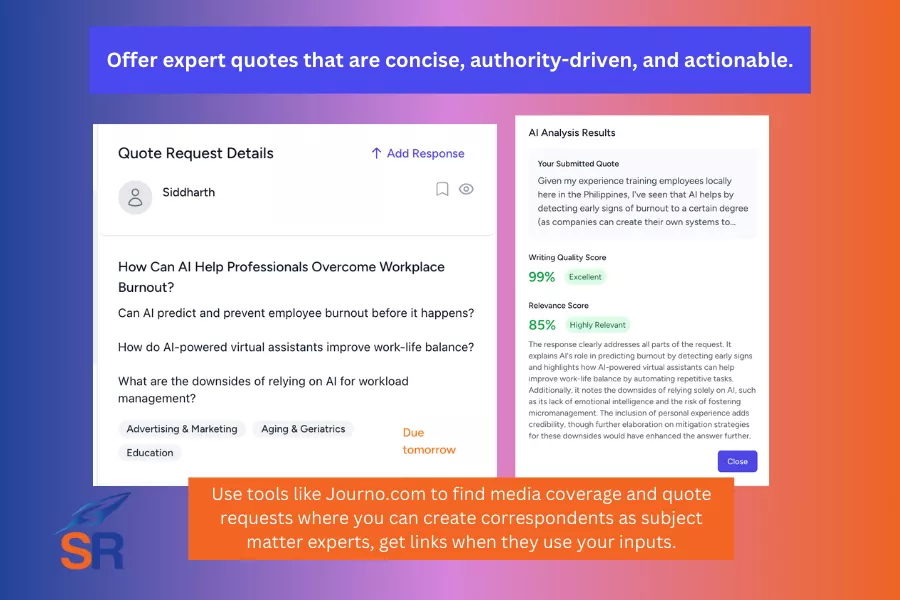There is a clear competitive advantage in doing link building for startups – as it not only helps search engines discover, index, and rank new pages on websites, it also optimize these startups for large language models (LLMs) like ChatGPT, Perplexity, and AI Overviews – of which they rely heavily on sourcing information from publications.
For the 600+ startups Glen and his team track at Gaps, more than half have gained search traffic in the past year, which clearly indicates how promising SEO for startups can be – if done correctly.
With the double growth of AI Overviews since Google’s March Core Update, building links for visibility, not just rankings, will find an increasing demand for services—especially for startups who want to compete for bigger arenas in search.
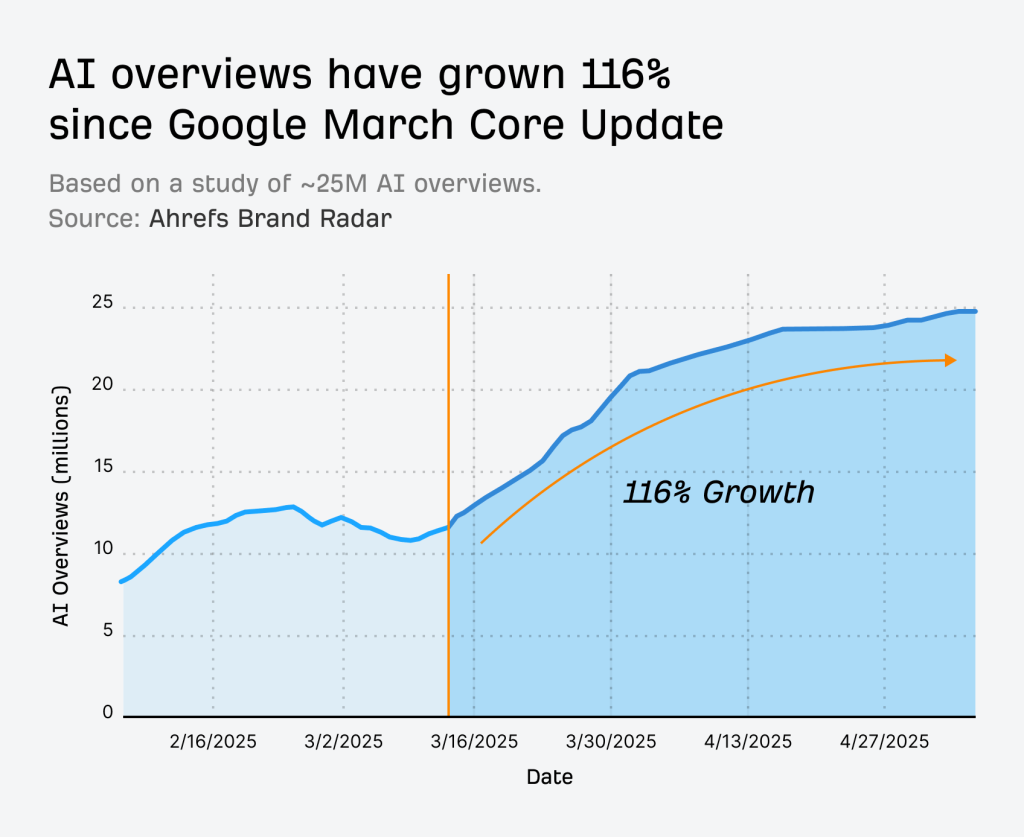
Here are a couple of ways to start maximizing link building for startups.
Contents
ToggleSecure Budget Buy-In for Link Building
Link building plan succeeds by having substantial resources, including securing a budget for efforts that lead to actual link placements (e.g, linkable asset creation, external content distribution, outreach, etc..).
Convince internal stakeholders and management by showing them the impact and value of links for a startup’s branding and reputation, not just SEO. As having data to support your claims increases the likelihood of effectively persuading these decision-makers and decision influencers to invest in link building – as they will see the integration of link building with the overall SEO campaign and even with the site’s online brand reputation.
For funded companies, especially those backed by venture capitalists, learning the right timing to invest in startup SEO helps position it as a growth channel instead of a risky investment in its early stages.
As most early startups may not see growth from search for 12 to 18 months, having a more realistic approach in link building (as a core part of your SEO presentations) will assist in managing the right expectations on its ROI.
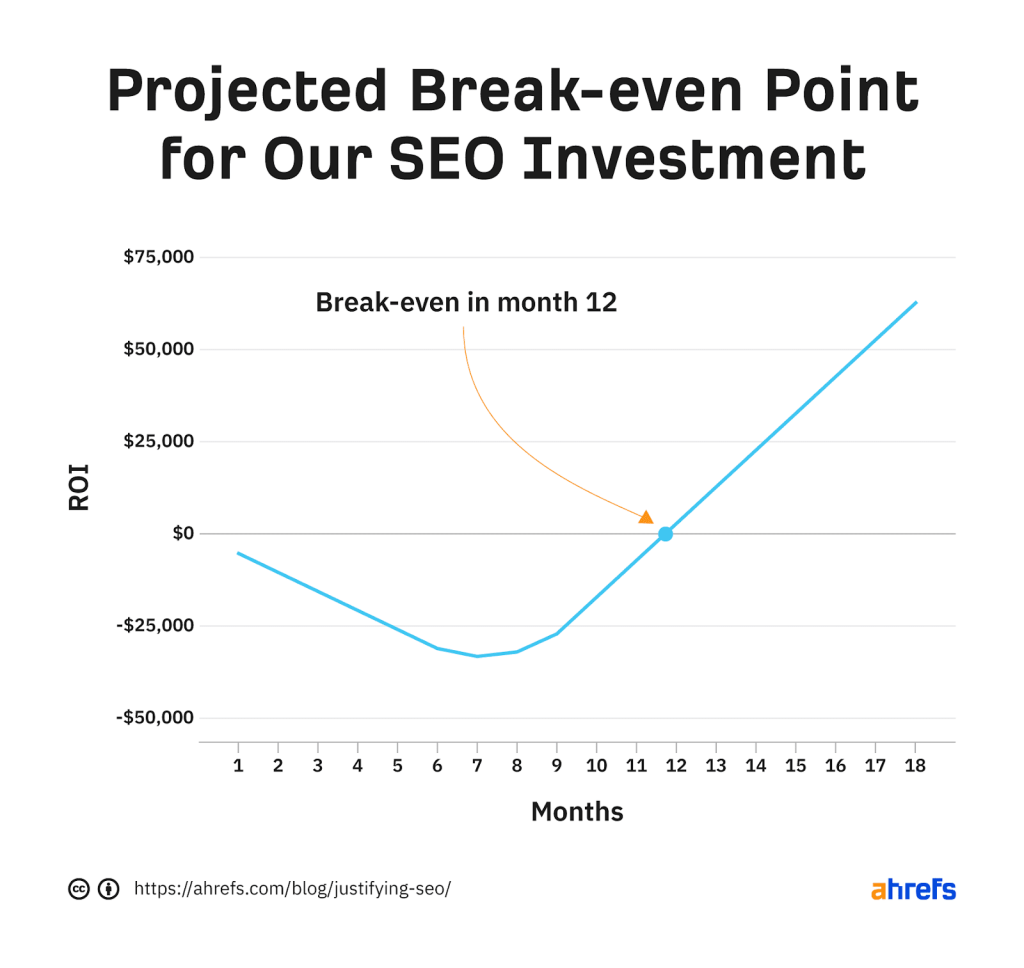
Generally, it is best to invest in link building during Series A startups, as not only do you already have a solid footing on financials at this stage, but your startup is also naturally generating brand awareness and potentially earning brand mentions and links—which you can leverage to acquire more authoritative and relevant links in the future.
For bootstrapped startups, investing in link building (and SEO) is a matter of the business owner’s perception and confidence in the direct and indirect impact of organic search marketing.
And this is what I’ve seen with more risk-taking startup founders.
For instance, SEO became my go-to marketing channel to drive consistent leads for my coffee franchising company in its early years, primarily for these reasons:
- I’ve seen the direct impact of SEO on business growth (our link building agency has several case studies showing how link building and SEO drive actual business revenue).
- The conversion rate is much higher with SEO compared to other marketing channels I’ve tested for my service (e.g., Meta Ads) – as the intent to purchase in SEO is clearly defined in the terms they search for, and for which we target to rank with our landing pages.
Think Infinite Game
What separates successful link-building campaigns from those that aren’t mainly comes down to the mindset involved in acquiring links.
Many search marketers still rely on short-term link building tactics (e.g., parasite SEO) that Google continuously fights against with its constant updates (e.g., site reputation abuse)—and we’ll be seeing more of these as they improve search results in the future.
Thinking long-term sustainability and impact helps you stay longer in SEO and reap its rewards. It also helps you strategize your link building campaigns to compound more and better results (think leverage and the 80/20 rule).
Use link building strategies that will have a solid impact on your site’s branding and reputation, months and years after you start the campaign—for instance, targeting links from sources where you want to associate your brand with, as they tackle similar audiences or ones that Google sees as authoritative in your industry.
This will also help search engines better understand the relevance of your content to specific topics – where your startup will more likely secure higher search visibility as your webpages surface higher on AI Overviews.
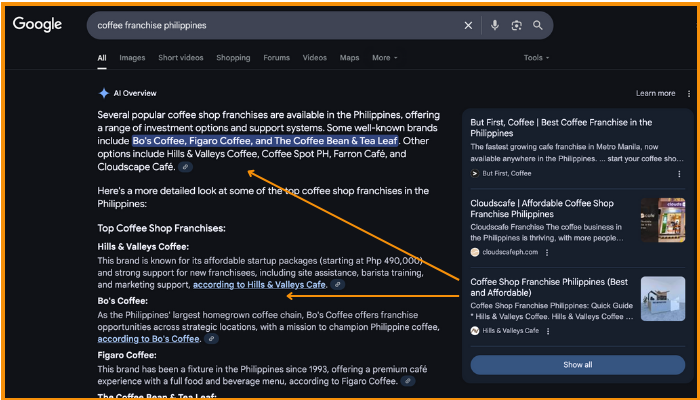
As a link building consultant and strategist, thinking long-term game is one of my upfront recommendations for clients as they embark on a link building campaign with our agency. Not only does it help manage expectations and retain them longer with us, it also allows us to prepare the website for long-term branding benefits (which won’t easily happen with short-term link building projects).
Target Reverse Linkerati
With their intent for resource linking, linkerati becomes the target of many outreach-led link building campaigns.
Given that the campaign’s success is almost guaranteed with a predictable number of link placements, sending a higher volume of outreach emails was not an issue until these linkers (publishers, webmasters, journalists, and anyone with the capability to edit contextual placement on a given website or publication) started restricting their editors’ external linking to other sites’ content pieces.
This makes outreach campaigns for newer or less-established sites like startups far more difficult.
So instead of sending outreach emails in pursuit of linkerati, you can actually take the reverse approach – wherein you create content pieces that other brands, content creators, and publishers would want to get a link from/be included in the list – “reverse linkerati”.
You let them come to you when they request links or make efforts so that you can link to their content assets. This mindset makes it far easier to negotiate other content partnership efforts – i.e., link exchange, which benefits you the most as you can choose your preferred anchor text and relevant linking page.
Set Link Metrics From Best Links
Many link building agencies and in-house SEO teams use the standard approach to setting link metrics —Ahrefs DR—so anything under a certain number (e.g., below DR30) isn’t a link opportunity worth pursuing.
The problem with a DR-based metric is that you might miss many more brand-relevant websites, not just industry-relevant ones, for your startup. These websites may have lower DR, as links are still catching up on their link profiles, but the good part is that they pass stronger link equity and authority signals to your site than those with higher DR publications.
One of the best approaches to setting quality link metrics is to look at your competitors’ best links—the ones trusted not only by link numbers alone but also within your sphere, gaining popularity given their brand reputation and authority.
You can approach setting link metrics based on competitors’ best links in two ways:
Set criteria for link sources by handpicking the best links.
This may seem laborious to some, but it is often the best approach to setting the right link metrics for your link building campaign, especially if you want to build the proper foundation of quality links right at the start for your new business.
Enter a competitors’ domain in Ahrefs’ Site Explorer to see their backlinks. Repeat this process for each competitor’s domain and export the link reports.
Invest a few hours daily in manually checking each linking page and making corresponding notes as to why it is either a good or bad link to pursue. Look beyond Ahrefs’ DR and see what makes the website or linking page a good opportunity.
A couple of things you may consider when checking if it’s a best link or not:
- Link placement
- Topically relevant pages (note the specific industries of the linking page/content).
- Internal or external pages that show the site’s credibility (About Us, Team, social media profiles, etc).
- Good UX and well-designed pages
From here, you can brainstorm with your team (or set it yourself) a good list of link metrics that will be the basis for qualifying future link opportunities for your campaign.
Filter sites based on “best links”.
This is the more straightforward approach to setting link metrics. You basically use Ahrefs’s “Best Links” feature to show you the linking pages that fit the default numbers.
You may also customize the “Best Links” feature, i.e., set the minimum domain traffic at 1K.
Rank Easily by Targeting Emerging ‘Research’ Keywords
Publishing linkable assets that rank for informational queries and get cited by other publishers in their writing stage has become a fundamental and standard link building strategy for many brands nowadays.
The massive benefit of earning links without doing outreach is so compelling that SEO specialists are finding ways to improve the process and make it scalable for many industries.
But what if your site lacks the authority it takes to rank within the top positions or at least earn its visibility so that future publishers can see it?
That’s where startups have to ideate from a different angle. Instead of competing for “statistics” and other informational queries that have high competition to contest for the top spots in traditional search, you can find new and emerging keywords in your industry that are way less competitive.
Look for ones with a growing search volume but high research intent, which other publishers will likely search for additional references to include in their content.
You can use Ahrefs’ Keyword Explorer to enter a broad or specific industry term. Then, filter by “First Seen” feature (which indicates the time Ahrefs has crawled for that search term) and click either 3, 6, or 12 months.

Publish content assets that target an emerging informational query and earn their way to the top of Google’s SERPs with few internal links from other relevant pages.
Unique Selling Proposition for links
Learning how to position your startup in a competitive market, which is the case in most software-as-a-service (SaaS) today, is crucial to gaining early quick wins in your inbound marketing campaign.
When you have a strong, unique selling proposition (USP), you will not only differentiate yourself from other competing brands but also give search engines and users a more contextual understanding of your product’s topical relevance to specific topics.
Build links to strengthen semantic relationships between your product and specific pain points and problems your audiences are looking for.
Strategically ask, earn, or build links from pages that have:
- High-value mentions of audience-specific pain points
- Contextually relevant mentions
- Mentions alongside related entities
- Mentions within authoritative and topically relevant content
- Mentions that reinforce existing entity relationships
Get more backlinks from linking sources with strong semantic relationships to topics you want your brand to associate with.
Relationship Building
With fewer linkeratis linking to other publishers, strategies that don’t rely on massive outreach to earn links become a core strength in link building.
Having a set of relationships established online will turn out to be one of your biggest advantages in acquiring hard-to-replicate links for your startup.
It’s also a significant leverage to penetrate publications that require highly specialized topics for guest blogging, in which relationships with editors who know the quality of your content assets make it easier for them to accept you as one of their co-authors or contributors.
There are also other ways beyond straight asking for a favor, wherein you can leverage relationships to get more relevant links for your startup:
- Co-author content for topics that require multiple perspectives, diverse experiences, and new levels of experiences, in which you can tap other influencers you know have a proven track record to co-write a comprehensive content piece on your blog.
- Request for contacts from industry publications you may not be aware of but are topically relevant to your site’s content theme – and with a given intro in emails, you’ll expect to have an initial trust built in the first interactions – which increases the likelihood for content distribution
- Get more recurring links from branded sites and continously get the benefit of recurring links – as it’s no longer about getting hundreds of links from completely irrelevant sources, but about earning multiple links from the same referring domain that are way more powerful to pass link authority – especially if those referring domains are strongly tied to your startup’s target content themes.
Going deeper with this approach involves turning your online relationships into offline, authentic interactions in which both parties will mutually benefit from any co-marketing efforts.
Written By
Venchito Tampon
CEO and Co-Founder at SharpRocket, a link building agency. With a decade of experience, Venchito has a proven track record of leading hundreds of successful SEO (link builidng) campaigns across competitive industries like finance, B2B, legal, and SaaS. His expert advice as a link building expert has been featured in renowned publications such as Semrush, Ahrefs, Huffington Post and Forbes. He is also an international SEO spoken and has delivered talks in SEO Zraz, Asia Pacific Affiliate Summit in Singapore, and Search Marketing Summit in Sydney, Australia. Check out his other business - Hills & Valleys Cafe.
Reviewed By

Sef Gojo Cruz
COO at SharpRocket, overseeing end-to-end operations, from crafting link building strategies to leading high-performing teams. Previously led SEO initiatives at Workhouse, a digital agency in Australia, and Keymedia, a real estate media company based in New Zealand.
How our LINK BUILDING AGENCY in UK builds 250 links/mo consistently using Predictable Link Building Methodology™…
- Using a SIMPLE and PROVEN system
- Using a SCALABLE strategy
- No private blog networks
- No creepy outreach emails
